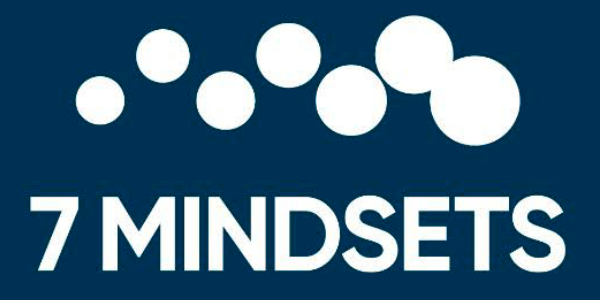I still wonder how I made it past age 16. During that year, I was not only the least capable driver I’ve ever been, but was also the most reckless and stupid. Luckily, I only had two accidents, neither of which was serious.
I certainly fear the day my children start driving, but not nearly as much as the day they leave our home to become adults in a world I can’t even imagine. I’m not sure how I survived my first year of college, and can’t even fathom a guess as to what life, work and play will look like 20 years from now.
So, when I think about what I need to teach them, I’m sometimes at a loss. Honestly, I am just not sure what skill sets they’ll most need.
My children spent a large part of grade school focused on spelling, a skill I’m honestly not sure will be a necessity in a future with advanced spell checking software.
I recently visited a web site called Wolframalpha.com, where I could enter in a calculus equation and it would instantly provide the answer. Is this what math in the future will look like?
So what can I teach my kids to equip them to not only be successful, but more importantly to be happy in the new world? I’m not saying that spelling and math shouldn’t be taught in schools, I just don’t believe these are the things that will ensure happiness and effective functioning in tomorrow’s society.
When we did our research on people who find the greatest success, happiness and meaning in life, it really had very little to do with what they knew, and was much more about how they thought. When I think about my own children, I want them to be positive, adaptive, resilient, creative, and able to connect with and relate to others.
Many factors can help people find success and meaning in life, but I believe those below will allow your children (and mine) to thrive in the new world.
Here are 6 time-tested life skills for teens based on qualities embodied by the world’s happiest and most successful people:
1- They Fail Faster and More Often
I had a great friend and mentor in college. I was naturally shy and reserved, and he would often push me to step outside my comfort zone. He had a great saying that I will never forget: “Take more risks, Waller – you may have a few more real problems, but a lot fewer imaginary ones.”
It’s true. Action eliminates doubt and, therefore, regret. When we put ourselves out there, we heighten our senses and are at our best, and it’s at these moments that we find our creative genius and do the extraordinary.
I once heard Sarah Blakely (founder of Spanx) speak. The world’s first female billionaire, she spoke of her youth, and how each night at the dinner table her parents would ask their children what they’d failed at that day. It was a celebration.
I encourage you to do the same. Celebrate failure and praise the mistakes of your children. We fail in life only when we quit or refuse to even try. Make your children fail-proof by making failure a success.
2 – They are Spiritual
I have struggled with spirituality my entire life. I remember admiring my friends who held strong beliefs. It gave them something to fall back on in difficult times, and I witnessed it giving them great strength and courage that I sometimes just did not have.
I personally feel we should allow our children to seek their own truth, but I also believe there are elements of spirituality that are universal and essential. The first of these is gratitude. The second is having a sense of purpose in life. The last is a sense of connection that comes from knowing we aren’t alone.
Practice gratitude with your children at dinner, at bedtime, and whenever else it’s possible throughout the day. Help them understand that no one like us has ever existed or ever will. We are each a unique expression of life, and we’re all capable of doing something wonderfully unique. Each of us has a purpose, and your children should seek theirs and share them with the world to the maximum extent possible.
Lastly, work with them to believe in others, and to understand that people will rise or fall to the level of expectations we have for them. The negativity we see in the news is only a miniscule fraction of reality; the vast majority of people are good, and I truly believe they want to help one another.
3 – They Follow the Golden Rule
Ever known one of those people whose life is in shambles and seems to be getting worse every day? Likewise, you may also know that person who turns everything they touch into gold. Our research has shown that these are realities and are largely dictated by how we apply the golden rule.
All knowledge and opportunity comes through other people. Whether it is from teachers, a book written by somebody else, or a lesson learned by observing something created by another, our growth comes directly from the contributions of others.
People that serve others are happier, they’re typically more successful, and they experience much greater joy and satisfaction. Call it karma or whatever you wish, but the truth is that people respond to you in kind. The world has a perfect accounting system – you do get what you give!
This is no secret, but it’s a point we as parents need to bring back to the forefront of what we teach our kids. If we treat others as we would like to be treated, then we will find the support we need from others to deal with our own challenges and capitalize on the opportunities in our lives.
4 – They are Readers
They say a person who reads gets to live a thousand lives. We all can’t travel the world and meet people from different countries and cultures. However, each of us has access to books, and there is no better tool for acquiring knowledge and broadening our minds.
I don’t know of a single person I admire who isn’t a reader, whether it’s books, magazines, newspapers or the Internet. People who acquire knowledge and perspective adapt and expand, while those who don’t often wither away.
They say that a mind, once stretched beyond its current dimension, can never return to its original form. Find ways to make your children avid readers and acquirers of knowledge. When they have a question, tell them to look it up. Dollars and time spent on books may be the best investment we as parents can make.
5 – They are Gritty
I believe the greatest gift we can give our children is the ability to live without us. It’s incredibly hard because we care so much, but we’re doing them no good if we’re continually bailing them out of difficult situations.
Dr. Martin Seligman said it well when he stated that children “need to experience authentic positive commerce with the world.” This means that they develop the ability to manipulate the world (or self-advocate) to their benefit. It also means that they develop confidence in their ability to deal with challenge and adversity. And the only way that can happen is through experience.
We must start to see the struggles of our children as positive, and as opportunities for growth. They will struggle, that’s just a fact, and you want as much of it as possible to happen while they’re under your roof with your protection against anything catastrophic.
6 – They Ask for Help
In the great under-recognized book, The Aladdin Factor, Jack Canfield and Mark Victor Hansen assert that the vast majority of people do not ask for help, and that being comfortable asking for help is essential to success and happiness.
Whether it is seeking counseling, getting assistance from a friend, or asking for monetary help, the vast majority of us shy away. The result is that our problems don’t get resolved, and many of our opportunities are never seized. We leave things on the table including joy, love, peace of mind and success.
Help your children know that they do not have to go it alone, that asking for help is a sign of strength rather than weakness. They need to understand that life is hard, that we all struggle, and there are times all of us need to look to others for support. You won’t always be there, but teach them this skill and you can have confidence that someone always will.
We can’t make our children bulletproof, but we can give them some protection. None of us truly know what the essential skill sets will be in the future. However, I assure you that their happiness and success is really not about what they know, it’s more about how they think. It is their mindsets and not their skill sets that will be the difference.
If you can instill these 6 characteristics in your child, they’ll acquire the necessary skills on their own to allow their lives to transcend ours.




